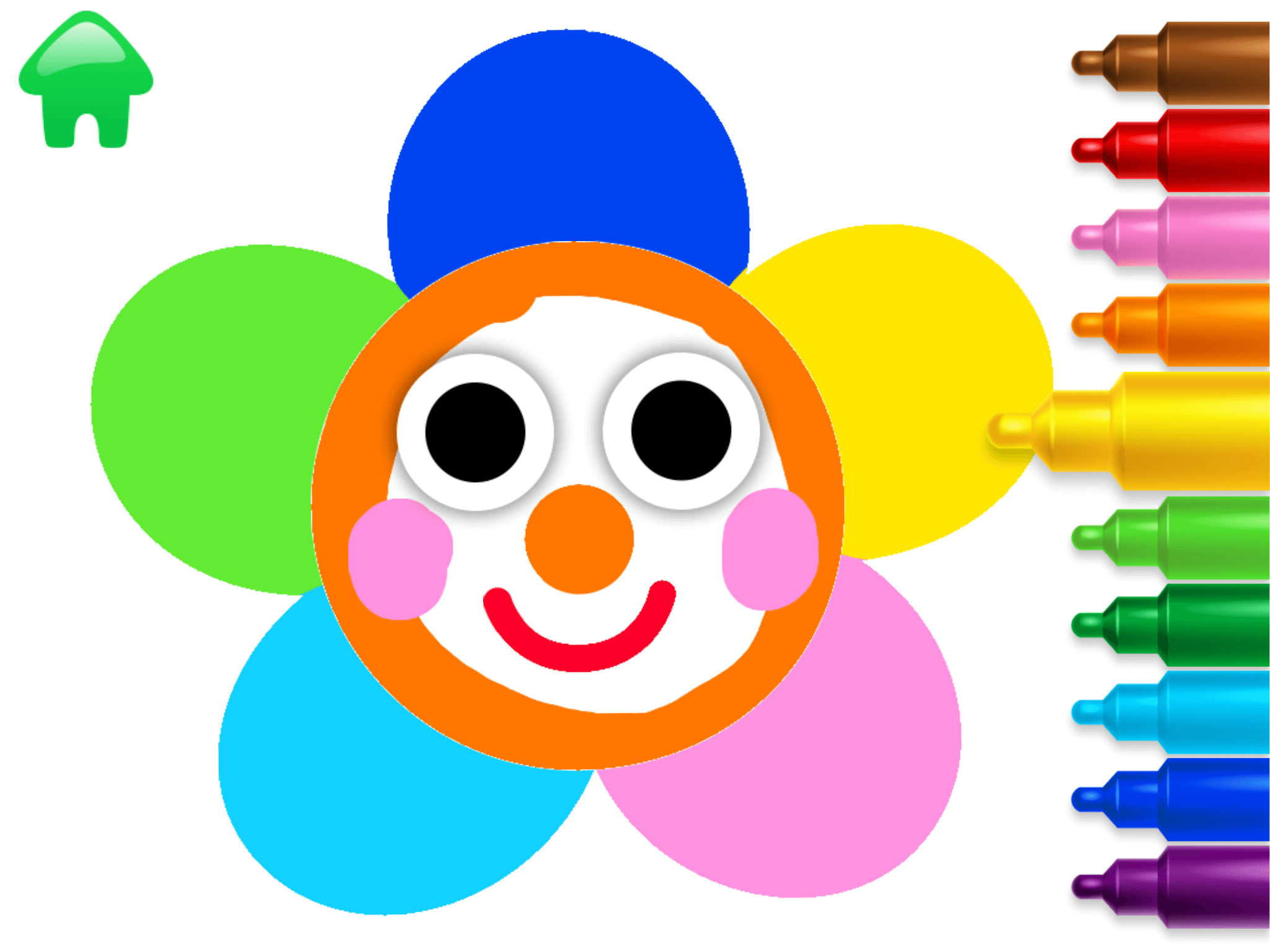Punctuation understanding Worksheets for Ages 5-9
6 filtered results
-
From - To
Discover our engaging Punctuation Understanding Worksheets designed specifically for children aged 5-9! These interactive worksheets help young learners grasp essential punctuation concepts, such as periods, question marks, exclamation points, and commas. Each activity is crafted to develop comprehension and writing skills in a fun, captivating way. Perfect for teachers and parents, these resources encourage independent learning and can be easily integrated into any curriculum. Watch your child gain confidence in their writing as they practice identifying and using punctuation marks correctly. Join us on this delightful learning journey with worksheets that make punctuation a breeze for your little ones!
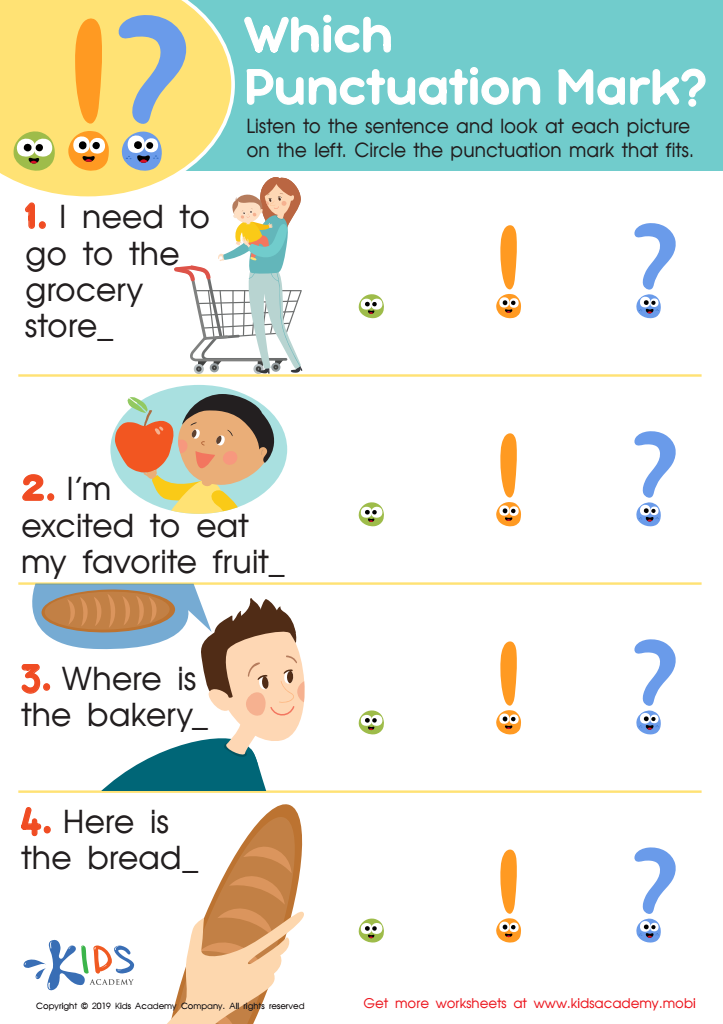

Which Punctuation Mark Worksheet
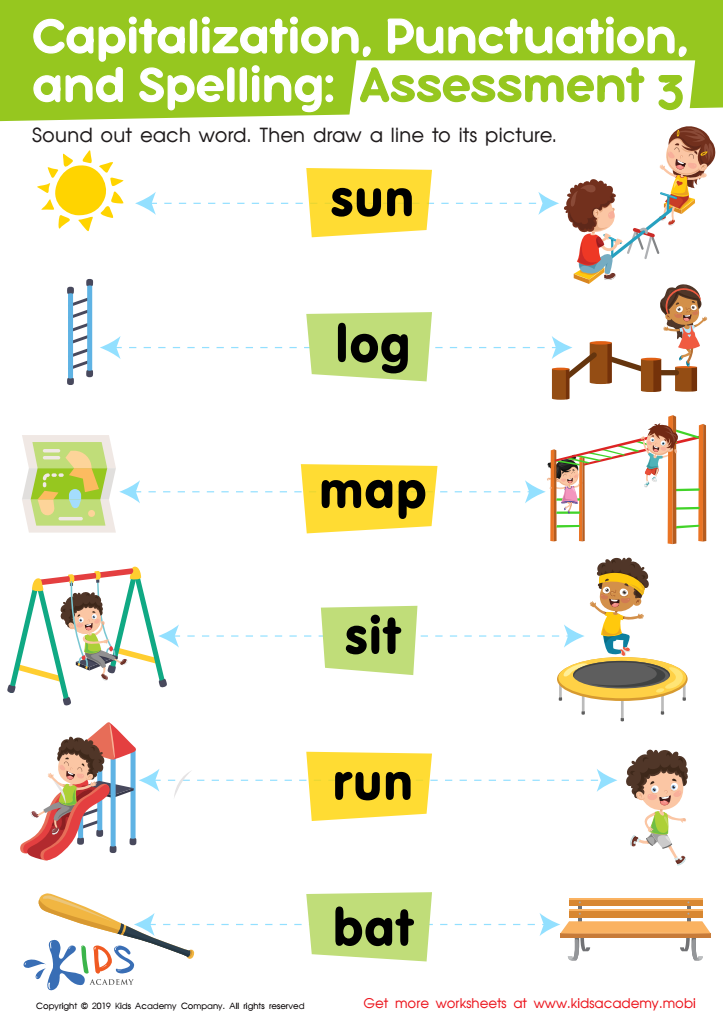

Capitalization. Punctuation. Spelling. Assessment 3 Worksheet
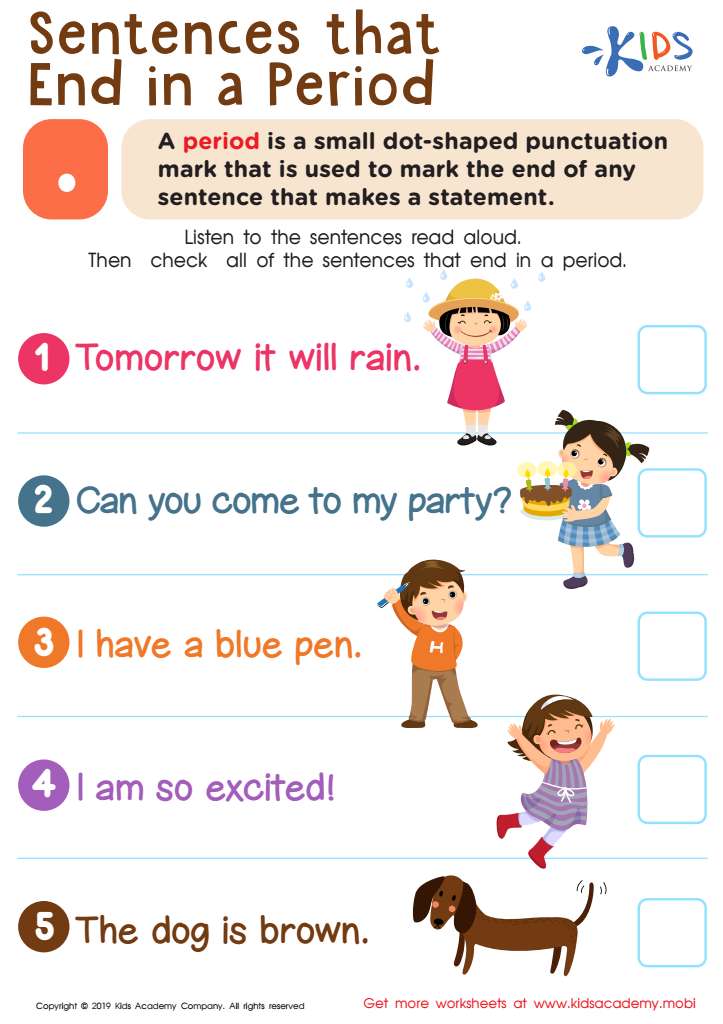

Sentences That End in a Period Worksheet
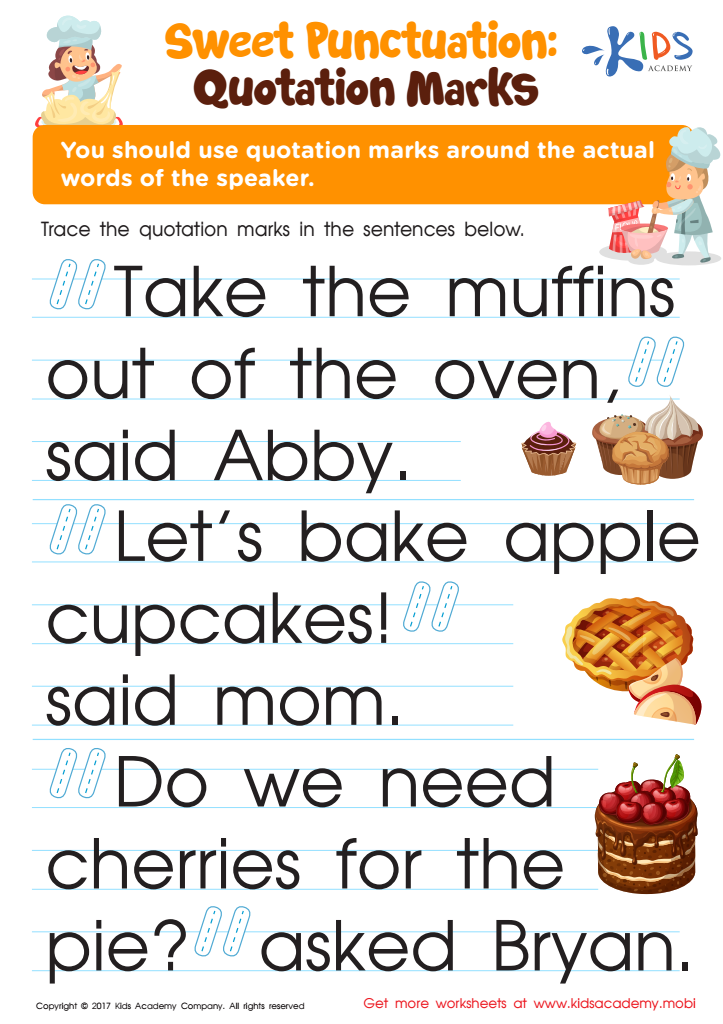

Commas and Quotation Marks Worksheet
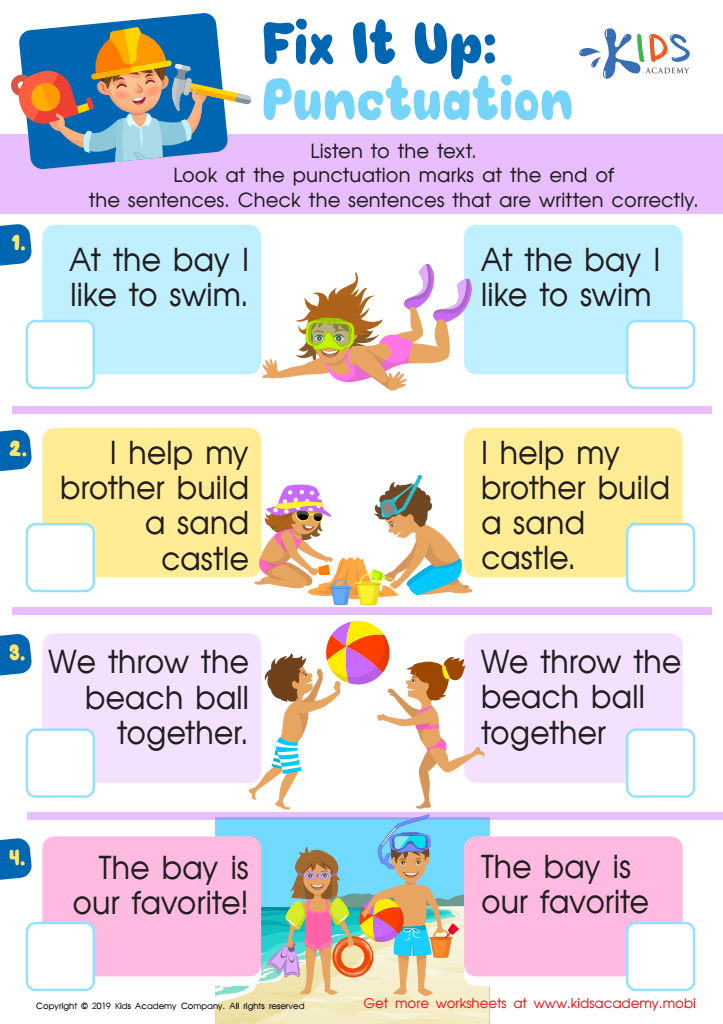

Fix Punctuation Worksheet
Punctuation understanding is crucial for children aged 5-9, as it serves as the foundational framework for effective communication. At this age, children are beginning to explore reading and writing, and punctuation marks like periods, commas, question marks, and exclamation points help convey meaning and emotion in their writing. By grasping how to use punctuation correctly, children learn to structure their thoughts clearly, which is essential for expressing themselves in both written and oral forms.
Furthermore, punctuation plays a significant role in developing comprehension skills. When young readers encounter well-punctuated text, they find it easier to understand the rhythm and flow of a sentence, which enhances their overall reading experience. Through reading practice, they internalize punctuation usage, setting the stage for more sophisticated writing skills in the future.
For teachers and parents, fostering punctuation understanding helps promote a love for language and literacy. It also encourages critical thinking, as children begin to analyze how punctuation alters meaning and intent in both reading and writing contexts. By prioritizing punctuation awareness, adults can empower children to communicate confidently and effectively, laying a strong foundation for academic success and lifelong learning.

 Assign to My Students
Assign to My Students










